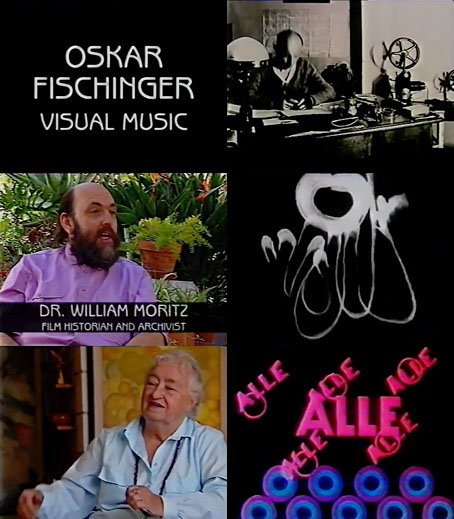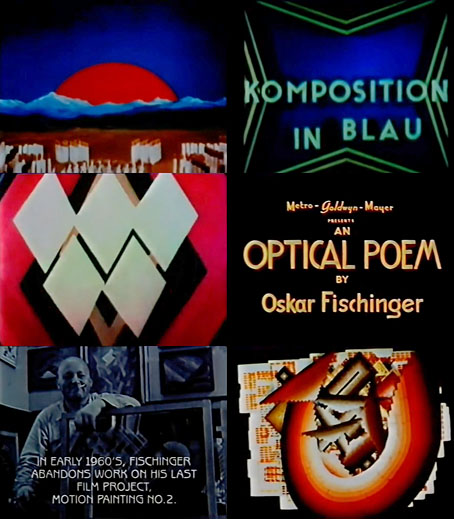Every so often I go looking for more of the documentaries about avant-garde cinema that Keith Griffiths produced for Channel 4 (UK) in the 1980s and 1990s. Oskar Fischinger: Visual Music (1992) is one I’d been after for a while but it took some time to finally surface in searches as a result of the uploader misspelling the name of its subject. Film historian William Moritz describes Fischinger’s films as “visual music”, a term which has since become more widely applied to abstract cinema although not all abstract films have musical scores. Fischinger was a pioneer in this area, not necessarily the first but a film-maker who in the 1930s pushed his techniques to a peak of complexity far beyond anything being attempted elsewhere. The acclaim for his short films attracted the attention of Paramount, MGM and Disney but Hollywood typically didn’t allow him to do the things he was best at once he’d been hired. As I’ve said before, Fischinger’s tests for the Toccata and Fugue in D Minor section of Fantasia were rejected as “too dinky” by the creator of an anthropomorphic cartoon mouse.
Griffiths’ documentary ought have been twice as long as its 25 minutes but at least it was commissioned and broadcast. The interviewees are the aforementioned Moritz and Fischinger’s widow, Elfriede, who helped create some of the films and talks a little about her husband’s techniques. Half the running time is taken up with extracts from the films but the video quality does these no favours (and the picture is too damned dark…uploaders: adjust your gamma!), you’d be better off looking for copies of the complete films elsewhere. More from Moritz’s interview session turned up a year later in Griffiths’ Abstract Cinema, an excellent history of the form which, of course, included Fischinger’s films.
Elsewhere on { feuilleton }
• The abstract cinema archive
Previously on { feuilleton }
• An Optical Poem by Oskar Fischinger


